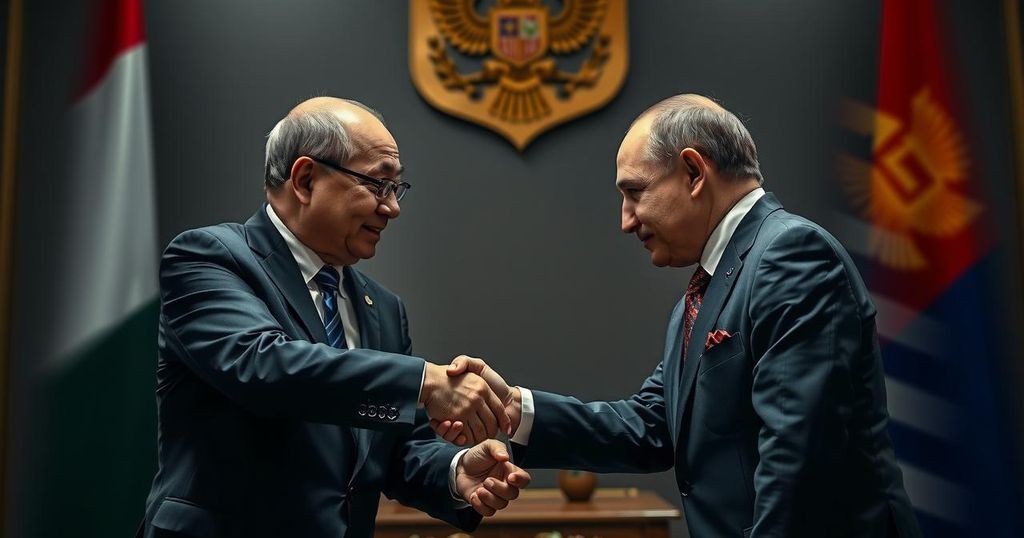Indonesia and Russia have signed an extradition treaty intended to combat transnational crime, marking Indonesia’s first such agreement with a European country. The treaty was signed by Indonesian Law Minister Yasonna Laoly and Russian Justice Minister Konstantin Chuychenko in Bali, and it enhances bilateral relations against the backdrop of increased Russian migration to Indonesia since the Ukraine conflict began.
On Friday, Indonesia and Russia formalized an extradition treaty aimed at combating transnational crime, marking a significant development in their diplomatic relations. This agreement represents Indonesia’s inaugural extradition pact with a European nation. Indonesian Law and Human Rights Minister Yasonna Laoly and Russian Minister of Justice Konstantin Chuychenko were responsible for signing the treaty in Bali, a popular resort island. During the signing ceremony, Minister Chuychenko emphasized the importance of the treaty, stating, “With this treaty signed, we now have a legal basis for our cooperation in the sphere of combating crimes, and this is going to be systematic and productive in the future.” This agreement comes at a time when Indonesia has seen an influx of Russian nationals fleeing to Bali since the onset of the conflict in Ukraine. In the wake of sanctions imposed by Western nations following Russia’s invasion of Ukraine in February 2022, the Kremlin has sought to strengthen its ties with Asian and African countries. This diplomatic strategy includes potential investments in Indonesian infrastructure projects, particularly in the development of new railways and a significant refinery in East Java. Additionally, the Russian embassy in Jakarta has indicated that President Putin has extended offers for Russian Railways to invest in Indonesia’s upcoming capital on Borneo island.
This treaty occurs in the context of Indonesia’s growing diplomatic engagement with Russia. The geopolitical climate has shifted since Russia’s military actions in Ukraine, resulting in a considerable number of Russians seeking refuge in Indonesia, particularly in tourist-friendly destinations like Bali. Furthermore, as Russia faces food and energy sanctions from Western countries, it is actively pursuing partnerships with nations it perceives as allies or neutral, seeking economic and infrastructure cooperation.
In summary, the recent signing of the extradition treaty between Indonesia and Russia signifies a pivotal moment in their bilateral relations, aimed at enhancing cooperation against transnational crime. This agreement not only addresses current legal and security challenges but also aligns with Russia’s broader strategy to foster closer ties with Asian nations amidst its ongoing geopolitical isolation. The treaty is expected to yield systematic collaboration between both countries moving forward.
Original Source: www.scmp.com






